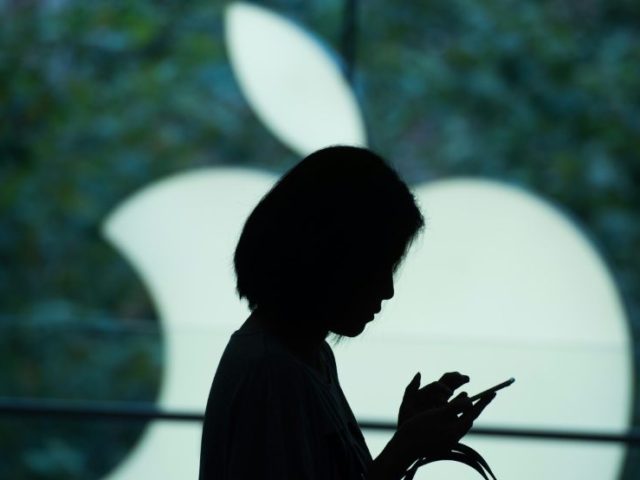Despite years of Apple Inc. succeeding in gaining huge market share by apparently granting China state security authorities “backdoors” into its product encryption, communist regulators shut down Apple’s iBook Store and iTunes on April 22.
Key to China’s State Internet Information Office allowing Apple to grow in the “Forbidden Kingdom,” which is now the largest smartphone market on the planet, has been Apple willingness to cooperate with the “needs” of the China security agencies.
State-run People’s Daily reported in January that Apple chief executive Tim Cook had informed Internet czar Lu Wei that the company would let China’s State Internet Information Office conduct “security checks” on all products sold on the mainland. The Beijing News Agency added that Apple was the “1st foreign firm to agree to rules of Cyberspace Admin of China.”
But the very public announcement regarding Apple’s full cooperation in China came at same time Apple was refusing to give the U.S. Federal Bureau of Investigation source-code-level-access to the iPhone 5C of Syed Farook, who slaughtered 14 people and seriously wounded 22 in the San Bernardino terrorist attack.
In a U.S. Justice Department lawsuit filed to force Apple to cooperate, the San Bernardino District Attorney’s told a federal court that law enforcement needed a backdoor into the iPhone because there was “compelling governmental interest in acquiring any evidence of criminal conduct, additional perpetrators, potential damage to the infrastructure of San Bernardino County, and in protecting the California Constitutionally guaranteed due process rights of the victims, deceased and living, arising from state crimes committed on December 2, 2015,”
An embarrassed Cook quickly denied there was a double standard on cooperation between the U.S. and China by stating, “There were rumors that Apple built back doors in its devices, and let third parties have data and access those devices, but that was never true and that we would never do that in the future either.”
When questioned by Beijing News about Apple reneging on their China deal, Lu Wei said, “It doesn’t matter what you say, you should let our internet safety department do a safety assessment. We need to reach our own conclusions to put the consumer at ease.”
Over the last four months, Apple has waged a series of legal battles in multiple courts, referred to as Apple v. FBI litigation, claiming that the Founding Fathers “would be appalled” at the FBI’s demand for a backdoor into the iPhone.
To strengthen its case, Apple enlisted Silicon Valley’s largest tech companies and numerous consumer privacy advocates in a national campaign to blame the FBI and the US National Security Agency for trying to use the San Bernardino terrorist attack as an excuse to trample Americans’ Constitutional rights.
Electronic Privacy Information Center on March 8 filed a “friend of the court” brief, joined by eight other consumer privacy organizations, in support of Apple’s challenge in the FBI iPhone case, pointing to the increased risk of cell phone theft and financial fraud that would result from compelled encryption.
The legal battle cooled after the FBI paid over $1.3 million to hack Syed Farook’s iPhone.
But Breitbart News reported that FBI Director James Comey was in Beijing in mid-March to meet with the Public Security Minister Guo Shengkun, director state surveillance, in an effort to “deepen law enforcement and security cooperation.”
The FBI claimed the diplomatic meeting was an effort to warm a relationship that have been chilled because of widespread Chinese hacking of the U.S. government and American corporations. But the timing of the “talks” made it clear that Comey and Shengkun were cooperating to pressure Apple into turning over a backdoor to authorities.
Shortly after the FBI meeting, China published regulations that outlawed foreign ownership of online publishing services and a requirement that all content shown to Chinese people must be stored on servers based on the Chinese mainland.
It is unclear if China shutting down Apple’s online book and movie services is a sign of mutual cooperation between American and Chinese authorities to force Apple to provide backdoors for law enforcement. But the series of events and timing of the announcement is interesting.

COMMENTS
Please let us know if you're having issues with commenting.